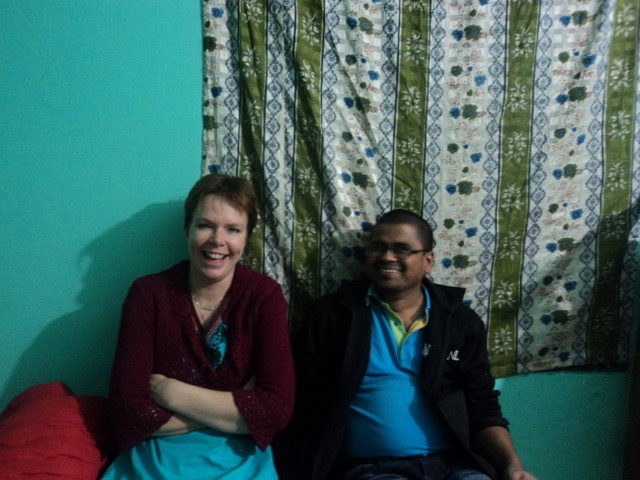BACKGROUND: SLOPB – Bangladesh
The Weijters family of the Netherlands adopted Abdul Motalib Howlader, son of Yaqub Ali Howlader, from the village of Dhulia, Bauphal Upazila, Bangladesh, at the age of 6 in the year 1977. Motalib belonged to a very poor family and evidently went through severe hardships during his time in post independent Bangladesh. The Weijters family being very affluent brought him up with all provisions of civic life within their family. Motalib grew up and studied in the Netherlands. After completing his studies and working in the hotel management, he and his partner Ingrid decided to track down his biological family.They thought his family had led a difficult life, if they were still alive, during the years Motalib lived in the Netherlands.Motalib's thoughts were confirmed when he found his biological family in very poor conditions, after 17 years.

Motalib and Ingrid were deeply moved seeing the poverty stricken living conditions of the family and other inhabitants of their village and drawn into the drive to work for improving the living conditions of the larger community surrounding the neighborhood out of sheer humanitarian feelings. Motalib and Ingrid founded an organization, Stichting Land Ontwikkelings Project Bangladesh (SLOPB- Bangladesh) on 6th January 1995 to realize their plans upon their return to the Netherlands. With this foundation Ingrid and Motalib raised funds so as to provide longitudinal help for their biological family and the community of Bauphal Upazila. Then it was expanded in Dashmina Upazila under Patuakhali District and Bakerganj Upazila under Barisal District.In March 1997 Motalib and Ingrid registered the organization in Bangladesh as an NGO with the NGO Affairs Bureau in Dhaka, Bangladesh and started to work on Water & Sanitation. Slowly the projects increased with help of different donors like Voluntary Services Overseas (VSO), Concern Bangladesh, Danida Denmark, Rabobank, ICCO, Nutreco, Cordaid, Wilde Ganzen foundation, Intervet, Max Foundation, Porticus, Bosch Foundation, Stok Foundation, Stone Fashion, Men’s Club Fashion, Simavi the Netherlands, Female Cancer Foundation Netherlands, Dutch Government and many private donors.
Way forward, Future Directions
SLOPB has contributed to the overall development of local communities over the years and have been very successful in implementing the broad based high impact programs and has gained wide acclaim in the region. The organization is presently focusing on solidifying its service delivery setup on a sustainable footing by integrating local communities, international donors and other stakeholders through unification of development efforts, program priorities, national long term development goals and MDGs and thus aligning the players in the right directions and mobilizing resources to fulfill the needs of the population. SLOPB is gradually expanding the geographic coverage of the programs to serve a wider population in a sustainable way and by local participation at all stages of program planning and implementation. From the program perspective the emphasis is gradually shifting toward CBO development and local empowerment for sustainability and continuation of ongoing services and from the Organizational perspective emphasis is given to adopt business approach to generate income for reducing the donor dependency and make sustainable changes in the community. SLOPB progress of work has often been halted by the institutional roadblocks but it has made steady progress through hard work, innovation and pragmatism. SLOPB is willing to share its experience and knowledge base to a wider population concurrently as it expands its geographic coverage and the impact spills over to other regions